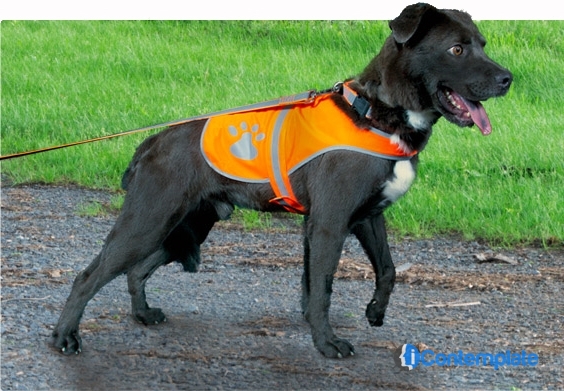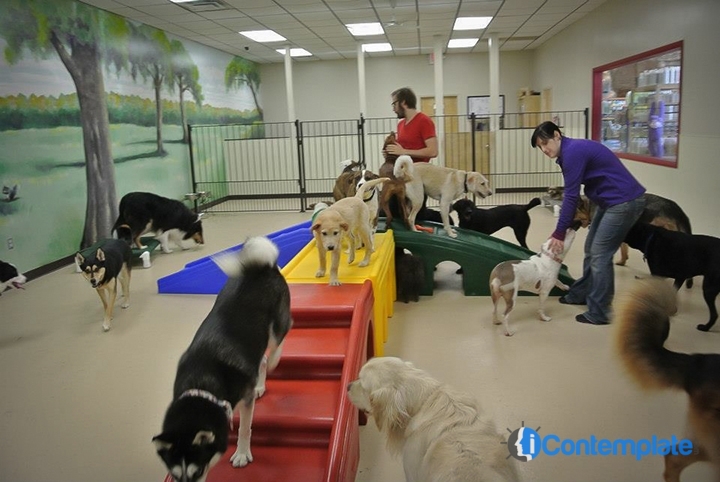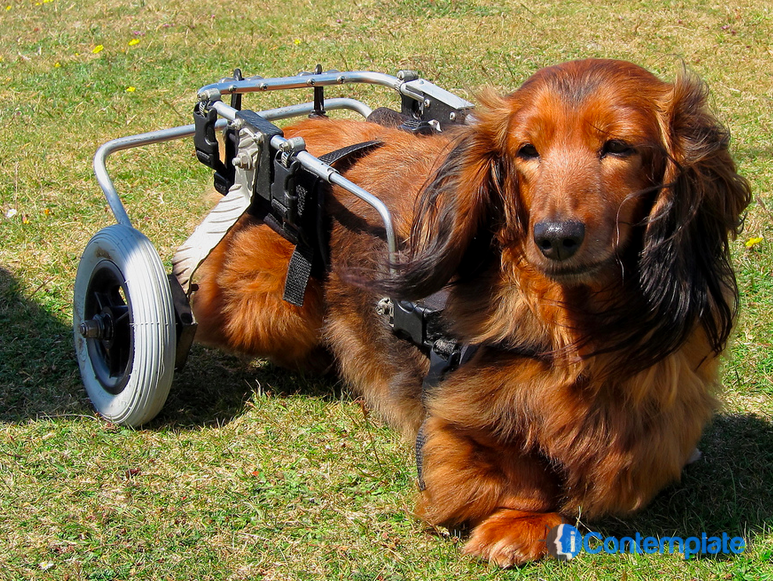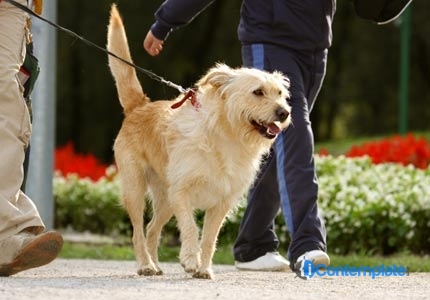Dogs are just like people. Some seem old before their time and others are still behaving like puppies when you’re expecting them to start slowing down.
In scientific terms, your dog is “old” when he has reached the last quarter of his expected lifespan, based on breed data. If your dog is a cross breed, then you can base your calculations on the average lifespan of an American dog, which is 12 years. You’ll also need to take into account the size of your canine best friend. Larger dogs have a shorter lifespan than smaller breeds.
Signs that Your Dog is Aging
It’s not always easy to notice your dog slowing down with age, because the changes are usually very subtle.
He is likely to start walking slower and may find it harder to get up and lie down. Stairs may be more of a challenge. You might also find that he doesn’t want to go as far or as fast when you go out for a walk.
Gray hair is another indication of aging in dogs, but it can start well before the senior years. It’s not a reliable indicator that your dog is getting on in years.
If you think your dog isn’t hearing you as well, or may not be seeing as clearly, you’re probably right. His senses won’t be as sharp so you’ll need to take that into account. Because he can’t see or hear what’s going on around him, he may become anxious.
You may also find you have more cleaning up to do. Your elderly dog can be incontinent and leak urine when he lies down. He may also find it hard to get up quickly enough to get outside to go to the toilet, and have an accident on the way.
How to Care for your Aging Dog
One of the most significant things you can do to keep your dog young is to keep him lean. Obese dogs have a shorter lifespan and suffer from age related degenerative diseases such as arthritis at an earlier age.
Keep up your dog’s mental stimulation. Take him on outings to new places regularly and if there is a good obedience class nearby, go there too. Keeping his mind active will slow the onset of dementia.
Exercise is good for physical and mental well-being. If your aging dog can’t walk far without discomfort, then think about taking him for a swim. A warm hydrotherapy pool will let him exercise without bearing weight as the warm water supports his body.
Visit your veterinarian regularly for a wellness check. As dogs age, their internal organs can slow down and you may start to see signs of liver or kidney disease. If these are caught early, treatment can slow the progression and reduce the symptoms.
Your dog getting older isn’t the end of your fun times together. You may need to modify your activities a little, but you can still share plenty of adventures and cuddles.
Susan Wright DMV is a vet, a dog expert and freelance writer. Susan shares articles on health conditions as they relate to dogs to help dog owners learn how to properly care for their pets.
Caring For Your Elderly Dog





